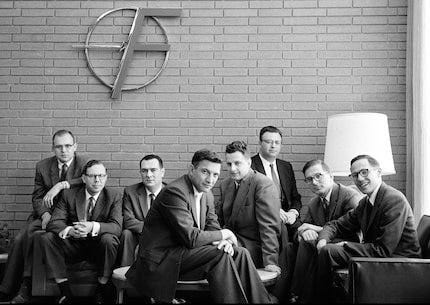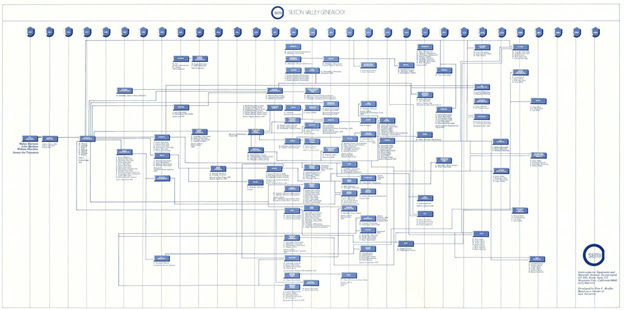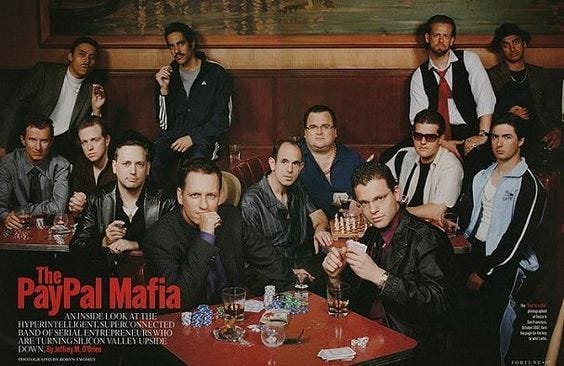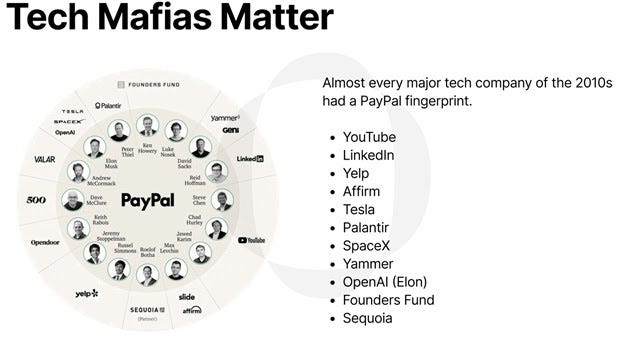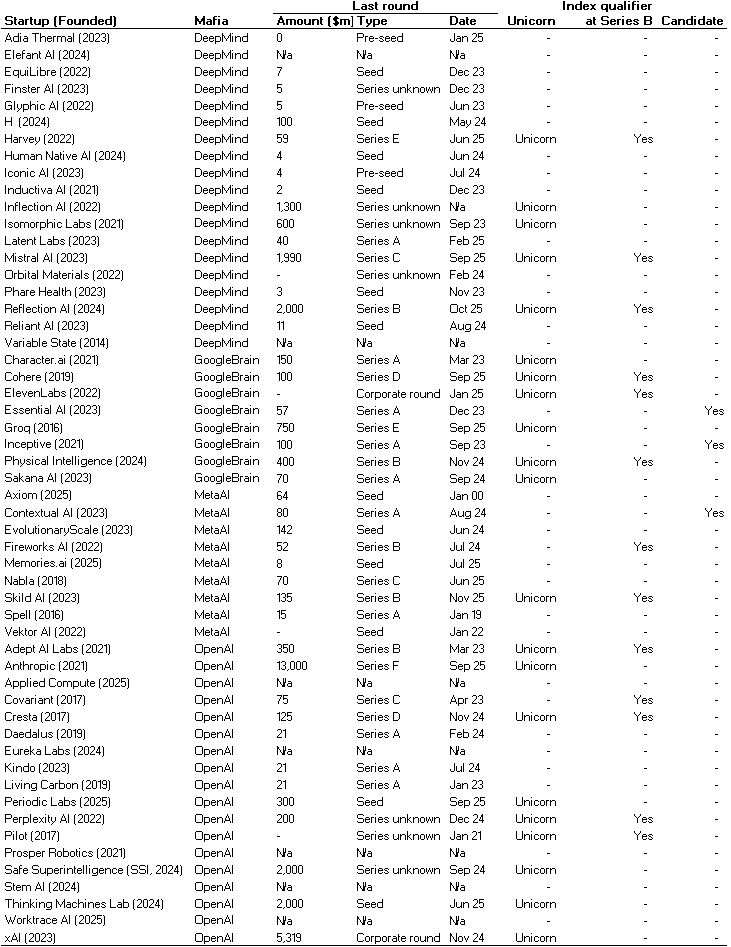AI mafia startups
Our last post examined “upstream” founder talent by considering new networks acting as credentialing institutions for young founders.
This post instead looks “downstream” founder talent, specifically the alumni of power law companies who go on to found notable startups. Certain companies, like Fairchild & PayPal, act as founder schools, spawning “mafia” of early employees who seek to recreate their prior company’s talent density, culture & philosophy in new startups.
A company can enter the pantheon of greats when former employees go on to have greater success still with new ventures. Brex is now bragging how they want to attract “quitters”, with 100 alumni already becoming founders. This feels like Brex doth protest too much; the “mafia” epithet is bestowed upon a company by the ecosystem, not self-designated.
Many investors specifically seek out founders who have experience as employees at hyper growth companies. We will see that this founder profile is adroit at raising capital, especially right now for anyone who has worked at a premier AI lab. The billion dollar seed round era is upon us.
The challenge of course is establishing which employees were indeed critical to the success of their alma mater. And, even then, a great employee does not necessarily a great founder make.
This post will leverage SignalRank’s data & algorithms to review startups founded by alumni of OpenAI, Google DeepMind & Meta AI alumni.
The OG tech mafia
Silicon Valley startup genealogy provides important connective tissue across generations in the ecosystem.
Fairchild, created by the “traitorous eight” in 1957, is probably the original Silicon Valley tech mafia. Its former employees became future founders of many so-called “Fairchildren” including little known companies like AMD, Intel & SanDisk. The chart below from here shows the corporate genealogy from Fairchild onwards.
More recently, the most successful group of former founders & employees is the PayPal mafia.
Cantos’ Grant Gregory created this chart here to show how many of the most successful companies in the 2010s had a PayPal fingerprint.
Which AI companies today are becoming the mafia of tomorrow?
Large established AI labs, specifically OpenAI, Meta AI, DeepMind & GoogleBrain, have started to generate founders at a decent clip. An illustrative list of notable AI start-ups from these labs is at the end of this post (Figure 3).
DeepMind & OpenAI have been the most prolific in ex employees spinning up new venture-backed AI companies (Figure 1).
The unicorn hit-rate for OpenAI spin-outs is particularly noteworthy, probably demonstrating the depth of risk capital in Silicon Valley vs London (where DeepMind is primarily based). Indeed, the aggregate capital raised in the last rounds of just four OpenAI alumni companies totals over $20bn: Anthropic ($13bn), xAI ($5bn), Thinking Machines ($2bn) and SSI ($2bn).
It should be of no surprise that the most active Series A investor (by far) for these spin-outs is a16z, followed by NVIDIA.
Figure 1. Comparing alumni companies from select AI labs
Of all the alumni companies from these labs, SignalRank is currently tracking three candidates which have raised a quality Series A but not yet raised a Series B. We would be keen to support the pro rata of existing investors in any upcoming high quality Series B of these companies.
Figure 2. Potential AI mafia candidates for SignalRank’s Series B product
Concluding thoughts
It is probably too early to talk of AI “mafia” but we are already starting to see employees from senior leadership positions at the best labs spin out on their own (despite Meta’s best efforts to attract AI talent by lavishing them with professional sports’ level of pay packets). PitchBook recently conducted research to show that OpenAI has already lost 25% of its key research talent in the last two years alone.
Capital is actively seeking these founders, meaning this trend is likely to accelerate.
Figure 3. Illustrative list of notable companies founded by AI lab alumni (adapted from here)



